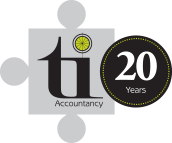
Business entertainment and VAT can often be a grey area for business owners, here’s a quick guide on the key points.
VAT cannot be reclaimed on the provision of business entertainment expenses to UK business contacts and non-UK business contacts who are not customers. This includes:
- Provision of food and drink
- Provision of accommodation
- Provision of theatre and concert tickets
- Entry to sporting/leisure events
- Use of capital assets for the purpose of entertaining
However, where an employer provides entertainment for the benefit of employees, for example to maintain and improve staff morale, it does so wholly for business purposes. Therefore the VAT incurred on entertainment for employees in instances such as staff parties, team building exercises, staff outings and similar events is input tax and is reclaimable. Please note there are different rules that apply to employee subsistence expenses incurred whilst working away.
So who is classed as an employee?
- A person employed by you
- Directors/Partners (see below)
- Self-employed persons (subsistence expenses only)
Who is not classed as an employee?
- Pensioners and former employees
- Job applicants and interviewees
- Shareholders (who are not also employees)
Directors/Partners and Entertainment
If the entertainment is ONLY provided to the directors or partners of a business the VAT incurred is NOT input tax. This is because the goods or services are not used for a business purpose. However, where directors and partners of the business attend staff parties together with other employees, it is accepted that the tax is input tax and therefore can be reclaimed.
Business Entertainment to Overseas Customers
‘Overseas customer’ means any customer not resident or carrying on a business in the UK, including the Isle of Man.
VAT incurred on the entertainment of overseas customers may be recoverable when incurred for the purpose of the business as long as it is seen as reasonable. However, there will be an output tax charge if there is a “private benefit” to the individual enjoying the entertainment which will cancel out any recoverable input tax. Private benefit in cases where the expenditure is necessary and for strict business purposes may be ignored. Hospitality provided because it would be polite, because it is expected, or because it would improve relationships is not for strict business purposes. Some examples of the treatment of business entertainment:
- If normal basic food and refreshments are provided in your office during a meeting to enable the meeting to proceed without interruption, then a private use charge will not apply.
- If there is no other alternative than to hold a meeting outside the office, only similar basic provisions would be allowable. Hospitality provided following a meeting will not meet the strict business purpose test and neither will hospitality involving the provision of alcohol. Taking a customer to a restaurant is very likely to lead to a private use charge.
- Corporate hospitality events such as golf days, evening meals are likely to have a private benefit charge as they are unlikely to have a strict business purpose or are necessary for the business to make its supplies.
If you would like any further clarification please do not hesitate to contact us.




